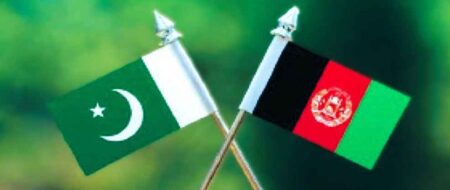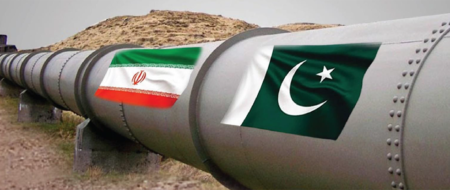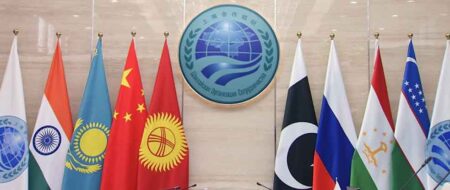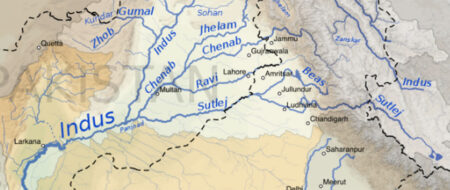{Article} China’s ties with India and Pakistan
The Pakistan leg of President Xi Jinping’s visit to South Asia has been postponed and new dates of the visit will be worked out between Beijing and Islamabad in days ahead.
The Pakistan leg of President Xi Jinping’s visit to South Asia has been postponed and new dates of the visit will be worked out between Beijing and Islamabad in days ahead. However, there is little doubt that the mutually agreed postponement of this visit, which could have jump-started implementation of several important projects in the pipeline will not adversely affect the overall close and deep rooted relationship between China and Pakistan. All the projects agreed under China Pakistan Economic Corridor (SPEC) will continue to move ahead irrespective of the rescheduling of the visit.
As is known, despite the postponement of the visit to Pakistan Xi Jinping’s visit to India would take place as per schedule. Such a development, in the context of triangular relationship, a few years back, could have been viewed as an extraordinary move by many, and for some may even today; yet, given the long standing and deep-rooted ties between China and Pakistan there now seems a clear realization that Sino-India relations should not necessarily be seen through the prism of Sino-Pakistan relations. The relations are neither dependent upon, nor directed towards any other contact or the relationship Islamabad and Beijing may have, or develop, with any other nation. Earlier, in 2013, the Chinese Prime Minister had also opted to visit India before Pakistan during his maiden trip abroad.
Moreover the global scenario is changing. The paradigm of ‘either one is friend or enemy’ which once used to be the main denominator in countries’ relations is now timeworn. Trade and economic relations are gaining greater significance and all countries now prefer to interact with each other even despite political differences. Add to it, in the backdrop of the Chinese approach, under its reform process, towards its foreign relations, it would be seen as quite rational that Beijing and Delhi are increasing their interactions. In fact Xi’s visit to India will be seen with keen interest in Pakistan.
The fast-expanding economic cooperation between China and other South Asian countries, particularly India, may be expected to have a welcome impact on the overall strategic environment of the region. Chinese engagement in the region provides a balance in an otherwise imbalanced scenario where even all countries together do not match the Indian size, which is regarded as one of the factors that has also kept SAARC practically suspended. As the economic interdependence will increase, and so will Chinese influence in South Asia, it may, with the passage of timer, pave the way for SAARC to explore its potentials. Similarly, it may be hoped in Pakistan that situation, in the long-run, would emerge where Beijing may play a role for lowering of tensions, if not resolution, over long-standing issues not only between China and India themselves but also between Islamabad and Delhi. Thus, as a whole, the cementing of commercial ties between China and India need not be seen as a concern in Pakistan.
Importantly both the Chinese and Indian leaders have just started their respective tenures of government and are expected to continue for five, or even more, years in office. While Chinese focus on trade and economy is quite well known, Modi’s India, in the backdrop of his election campaign, is also seen as giving a major stress to economic progress. Such a scenario puts Pakistan into an important position. Increased connectivity in the wake of SPEC together with Silk Road Economic Belt would open huge opportunities in the region for India as well; yet these can only be exploited in a scenario where India and Pakistan may enter into a better working relationship. In the same context the two initiatives, SPEC and SREB, are linked with Afghanistan where, until now, regional countries have not been able to come up with any combined initiative and Pakistan remains uncomfortable on any move that gives India a greater role under the US led agenda. In view of the amount of trust deficit that prevails in Pakistan for any American- led agenda and the amount of trust that exists – both in the government and among the people – in Pakistan about any Chinese led initiative one may anticipate increased chances for regional countries’ cooperation in Afghanistan in the coming years.
Terrorism, WoT, and the discourse related to it, is another important area that might get positively effected in any improved scenario in China-India-Pakistan three-way relationship. The rising number of cases of violence in recent days in Xinjiang have raised the significance of cooperation between China and Pakistan in this regard. Importantly, however, while it is possible for China and Pakistan to talk this, rather, difficult subject in a cordial and trusted environment, it has not been an easy case for Pakistan and India to talk about it. While terrorism cannot be justified in any scenario, Chinese engagement, in and around, may help lessen the tensions between two South Asian countries and to continue a sustainable and peaceful dialogue process even on such a challenging issue.
Beyond bilateral and regional, there is an important global dimension as well. Notably in the overall power balance in the Asian continent, India is perceived both within and outside as a counter force to China. Its support for the US backed, or under a mutually agreed, agenda in the Indian Ocean, provocative position and involvement in the affairs of South China Sea and uncalled-for diplomatic gestures towards Japan are not something that observers in Beijing would be missing. Thus while economic cooperation may be touching the new heights, the deep rooted sense of rivalry, if not efforts aimed at outright containment of China, is also there. In such a situation, it is advisable that while economic cooperation and win-win situation must be keenly looked forward, the outstanding contentious issues must not also be side tracked; not only between China and India but also between India and other countries of the region. Any cooperative effort or even results achieved in the absence of a comprehensive approach cannot thus be sustainable.












